Fentanyl Detox: Symptoms, Timeline, and Treatment
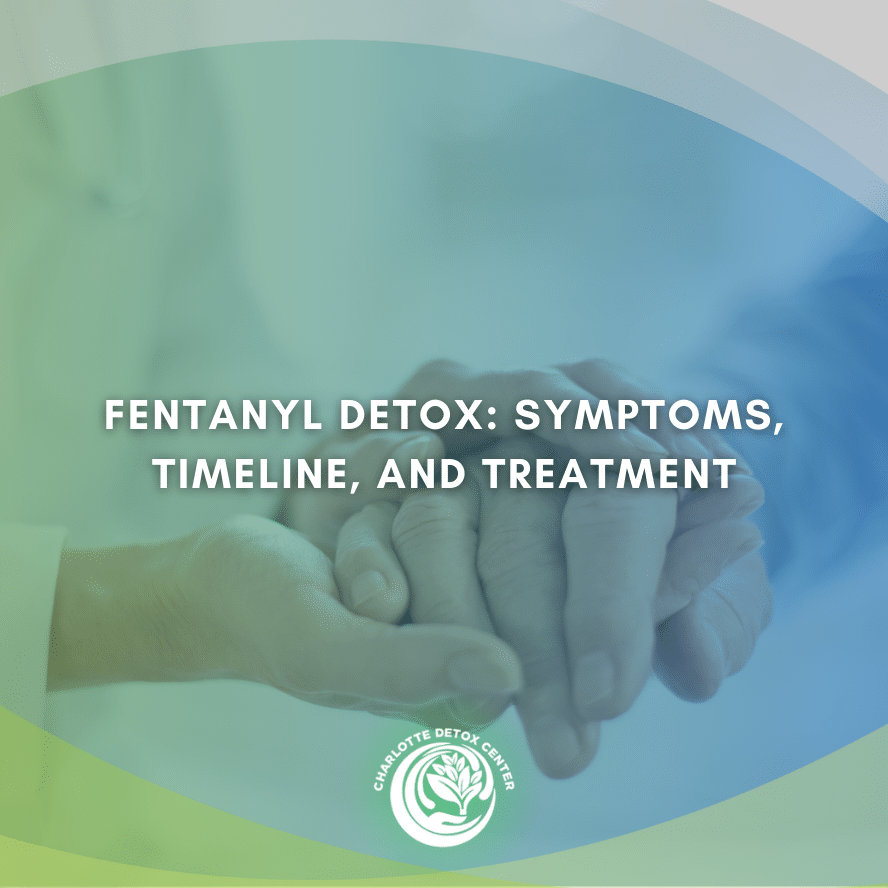
Medically Verified: 2/1/24
Medical Reviewer
Chief Editor

All of the information on this page has been reviewed and verified by a certified addiction professional.
Synthetic opioids like fentanyl are currently driving the opioid crisis. In 2020 alone, nearly 57,000 people died from a synthetic opioid overdose, most of which included fentanyl.[1] Fentanyl is a powerful opioid drug that is 50 to 100 times more potent than heroin and morphine, respectively. It is often cut into other drugs like cocaine, meth, or counterfeit Xanax to increase the potency of drugs and drive down the price.
Due to the sharp increase in fentanyl use across America, more and more people are finding themselves physically dependent on or addicted to the drug. Like other opioids, fentanyl is extremely addictive and can cause physical dependence in as little as one week. Chronic fentanyl users will experience severe flu-like withdrawal symptoms when they stop taking the drug, making it incredibly difficult to get sober.
Fentanyl detox programs in Charlotte, North Carolina apply evidence-based medical treatments to help individuals overcome withdrawal and begin their journey to recovery. Here is what patients can expect during fentanyl detox–from the symptoms to the withdrawal timeline, and what medical detox is like.
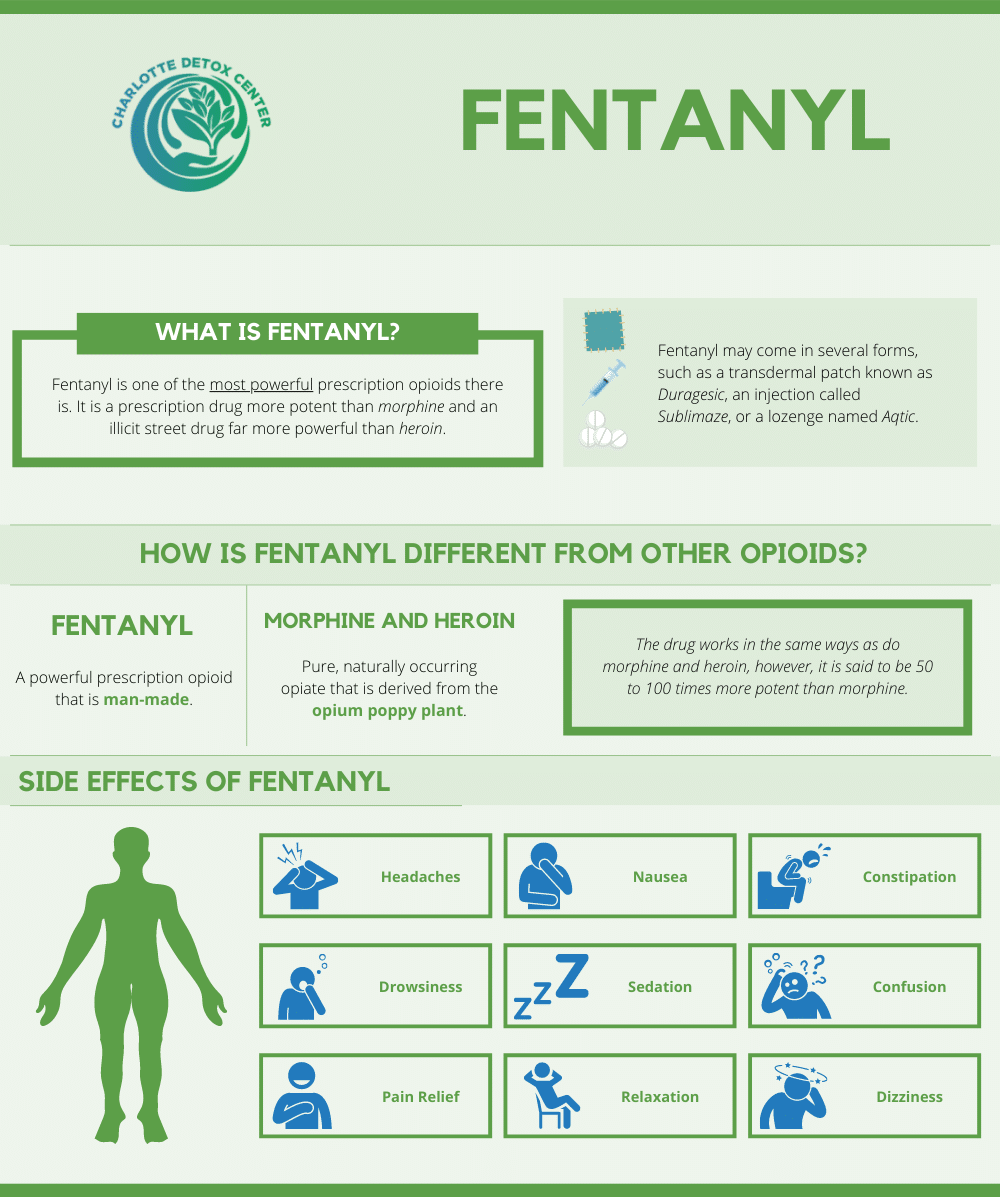
Fentanyl Withdrawal Symptoms
Symptoms of fentanyl withdrawal are the same as those from heroin or morphine withdrawal. They are generally not life-threatening, however, unexpected complications dealing with dehydration, malnutrition, and mental health do occur. The primary concern when it comes to fentanyl withdrawal is relapse. Without professional help from a drug detox center, individuals detoxing from fentanyl may be unable to cope with their cravings and become increasingly susceptible to relapse.
Symptoms of fentanyl withdrawal include:[2]
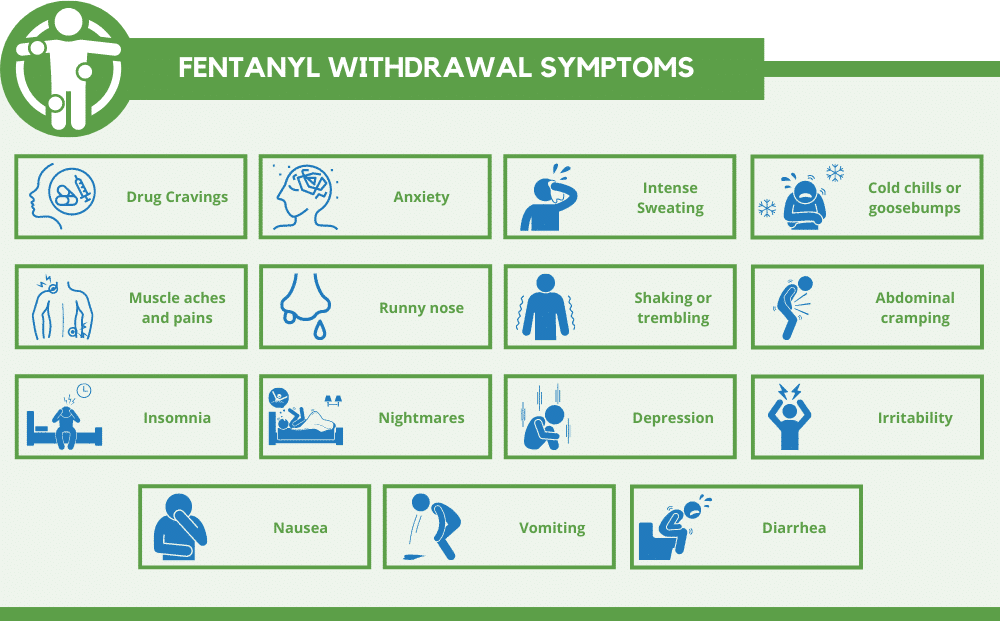
- Drug cravings
- Anxiety
- Intense sweating
- Cold chills or goosebumps
- Muscle aches and pains
- Runny nose
- Shaking or trembling
- Abdominal cramping
- Insomnia
- Nightmares
- Depression
- Irritability
- Nausea or vomiting
- Diarrhea
How long a person was using fentanyl, the method of administration they used, and other individual health factors determine both how severe withdrawal becomes and how long the entire process lasts.
How Long Does Fentanyl Detox Take?
Fentanyl has an extremely short half-life of 219 minutes.[3] This means withdrawal symptoms can begin in just two to four hours after a person’s last dose. However, individuals who were using a fentanyl patch on their skin may not experience withdrawal symptoms for 24-36 hours due to the slow-release delivery system in a patch.
Symptoms will slowly become worse over the first two days. Most people report their symptoms peaking between 2-4 days when sweating, chills, aches, pains, and stomach problems are at their worst.
After 7 days, most symptoms will begin to fade away or taper off. Most individuals begin feeling better and getting over their lingering symptoms after 10-12 days.
Even though the fentanyl withdrawal timeline is relatively short, it can be extremely painful and difficult to endure without medical assistance. Anyone who is addicted to fentanyl is encouraged to detox in a medical setting.
Detox Protocols: What to Expect During Fentanyl Detox in Charlotte, North Carolina
The safest way to endure the fentanyl withdrawal timeline is by doing so in a medical detox facility. Opioid detox typically involves medication-assisted treatment (MAT) and regular monitoring.
Evaluation
Each patient is unique with his or her own individual needs so the first step of detox involves a thorough evaluation. This evaluation will gather information like:
- How long the person has been using fentanyl
- Which method of administration is used (snorting, injecting, patch, etc.)
- Any medications being taken
- Family and personal medical history
- Current symptoms of withdrawal and/or mental illness
Patients may also undergo blood tests, urinalysis, and a psychiatric exam. This in-depth knowledge allows the medical team to develop an individually tailored detox plan specific to the individual.
Fentanyl Detox Medications
The FDA has approved three medications for the treatment of opioid withdrawal and dependence.[4] These may be administered from the beginning of detox and may be continued throughout a person’s treatment plan. Medications used during fentanyl detox include:
- Methadone
- Buprenorphine (Suboxone or Subutex)
- Naltrexone
These medications help reduce opioid withdrawal symptoms and drug cravings. However, patients may experience additional symptoms that need medical care. In these cases, additional medications may be administered.
- Clonidine – for high blood pressure
- Antidepressants – to treat depressive symptoms and help balance brain chemistry
- Anti-anxiety medications – help reduce anxiety and promote sleep or rest
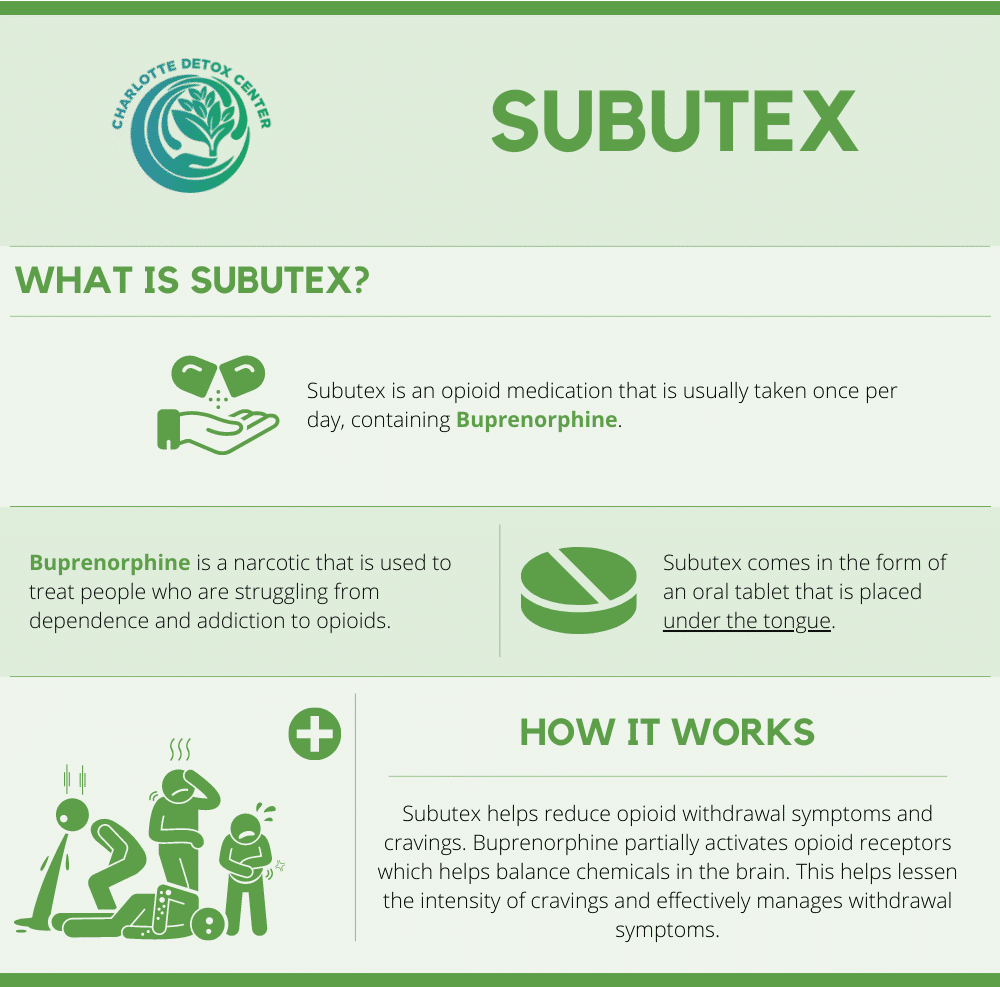
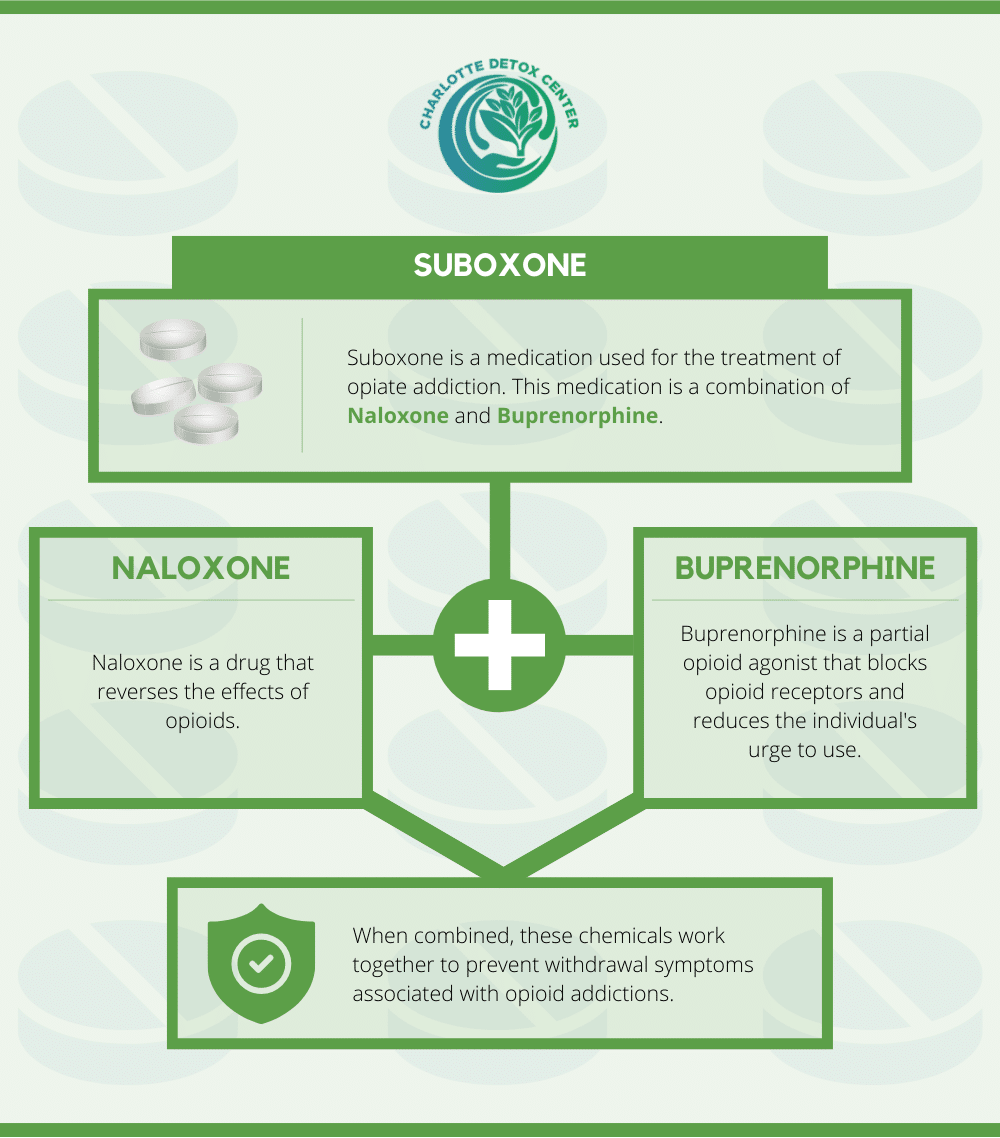
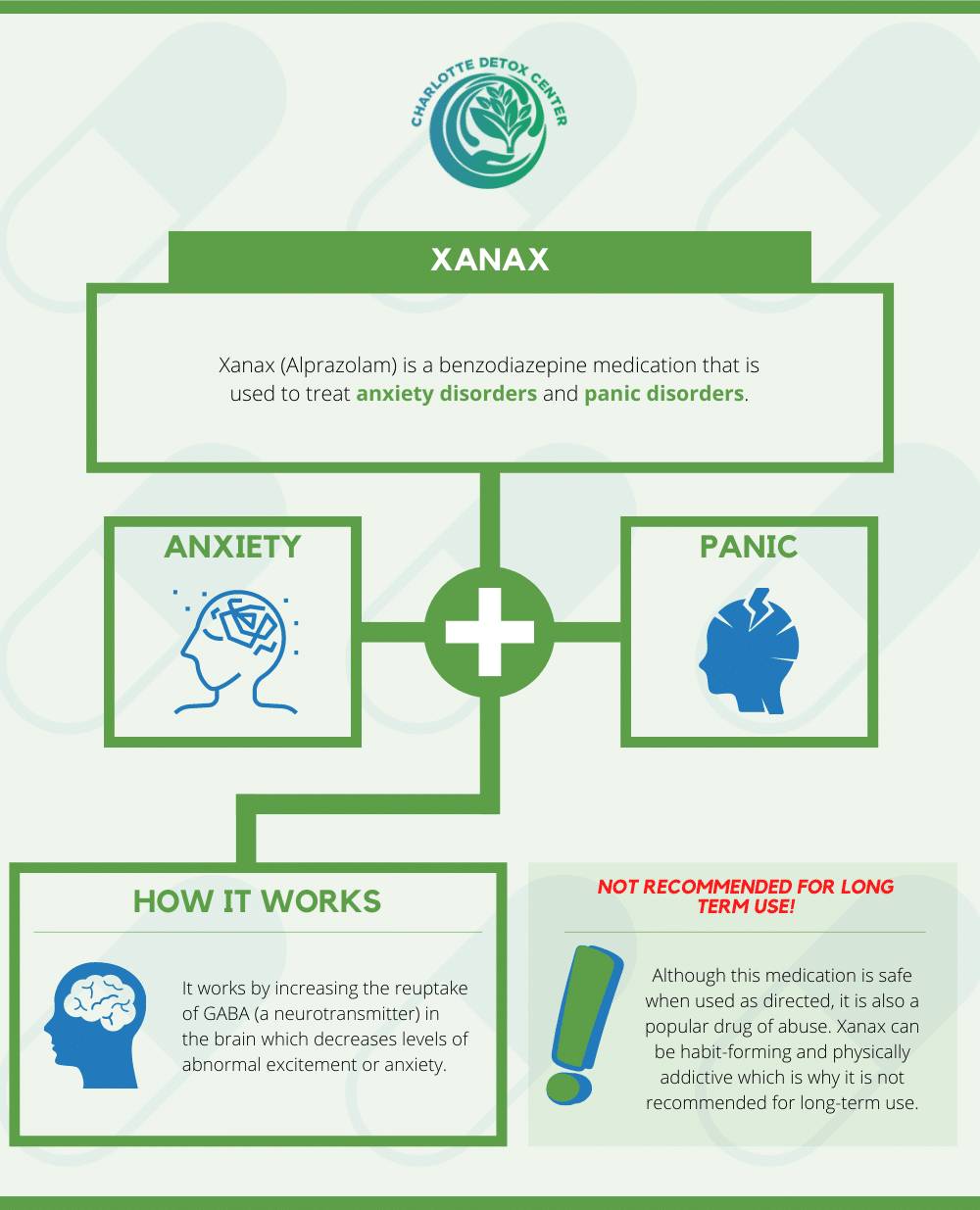
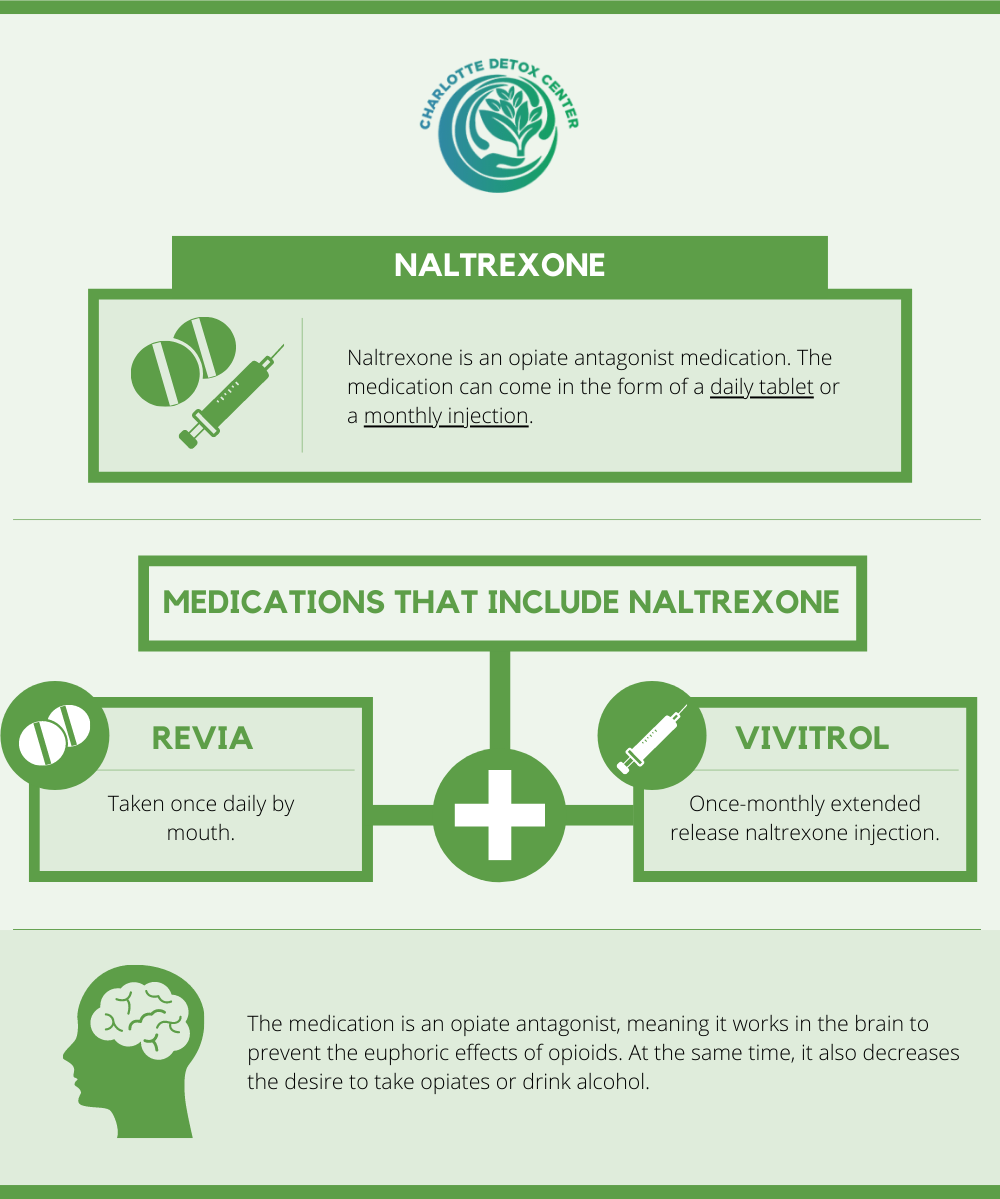
24/7 Monitoring
Throughout the detox process, nurses and doctors are on-site 24/7 to provide around-the-clock monitoring and support. Nurses check patients’ vitals at regular intervals, administer medications, and provide supportive care. This level of supervision helps prevent complications, relapse, and severe symptoms.
Treatment Planning Services
Detox is only the first step of recovery. Long-term sobriety requires comprehensive treatment and ongoing care. Before patients are discharged from detox, they will meet with a substance abuse counselor to discuss their treatment options and sign up for rehab.
Start Fentanyl Detox in Charlotte, North Carolina Today
Fentanyl is a powerful and addictive opioid that takes the lives of hundreds of Americans each and every day. If you or someone you know is abusing fentanyl, it’s only a matter of time before an overdose occurs. And, the only way to completely prevent an overdose is to abstain from illicit substances completely.
Don’t wait any longer, and don’t risk your life. Contact Charlotte Detox Center today to get started with fentanyl detox in North Carolina.
References:
- https://www.npr.org/2021/07/14/1016029270/drug-overdoses-killed-a-record-number-of-americans-in-2020-jumping-by-nearly-30
- https://www.ncbi.nlm.nih.gov/books/NBK526012/
- https://www.accessdata.fda.gov/drugsatfda_docs/label/2013/016619s034lbl.pdf
- https://www.fda.gov/drugs/information-drug-class/information-about-medication-assisted-treatment-mat
